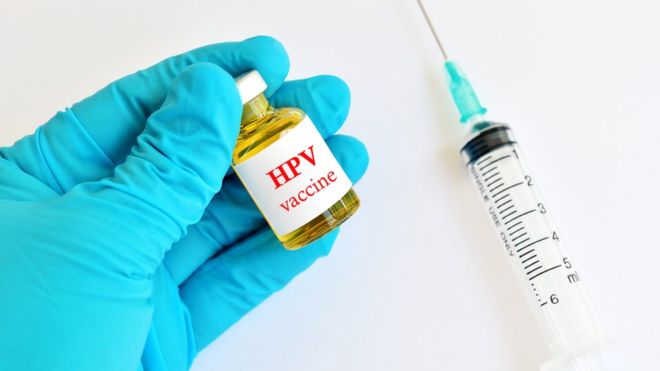Estimates suggest that the HPV vaccine programme will lead to the prevention of over 64,000 cervical cancers and nearly 50,000 non-cervical cancers by 2058.
From September this year, boys in school year 8 will be offered the free Human Papilloma Virus (HPV) vaccine for the first time.
Worldwide, about 5% of all cancers are linked to the HPV virus. This includes cervical, penile, anal and genital cancers and some cancers of the head and neck – all of which the vaccine helps to protect against. Cervical cancer is currently the most common cancer in women under 35, killing around 850 women each year. HPV is thought to be responsible for more than 90% of cervical cancers, as well as 90% of anal, about 70% of vaginal and vulvar cancers and more than 60% of penile cancers.
Modelling produced by the University of Warwick estimates that by 2058 the HPV vaccine currently being used may have prevented up to 64,138 HPV-related cervical cancers and 49,649 other HPV-related cancers. This would be 50 years after the introduction of the HPV vaccination programme, when people who were vaccinated as teenagers have reached the age groups that they would typically be affected by HPV related cancers.
Steve Sweeney, 43, from Chester, was diagnosed with vocal cord cancer in 2015. He’s delighted that his son, who is about to go into year 8, will be offered the HPV vaccine.
He said: “You get the sledgehammer which is the diagnosis and it’s incredibly tough to take. It has a big impact on every aspect of your own life as well as your friends and family. Everyone needs to adjust.
“We all know how serious HPV is and, as a parent who has been through it, it’s wonderful to know that my son will now get the protection that I didn’t and that his chances of suffering from a range of cancers are now significantly reduced.
“Vaccines are crucial; they’re a no brainer. We’re lucky that we can protect ourselves and our families against preventable illnesses. Why wouldn’t you want to do that for your family?”
Siobhan Farmer, Screening and Immunisation Lead at PHE North West, said:
“This universal programme offers us the opportunity to make HPV-related diseases a thing of the past and build on the success of the girls’ programme.
“Offering the vaccine to boys will not only protect them but will also prevent more cases of HPV related cancers in girls and reduce the overall burden of these cancers in both men and women in the future.
“I encourage all parents of eligible boys and girls to make sure they take up the offer for this potentially life-saving vaccine.
“It’s important not to delay vaccination, as the vaccine may be less effective as adolescents get older.”







